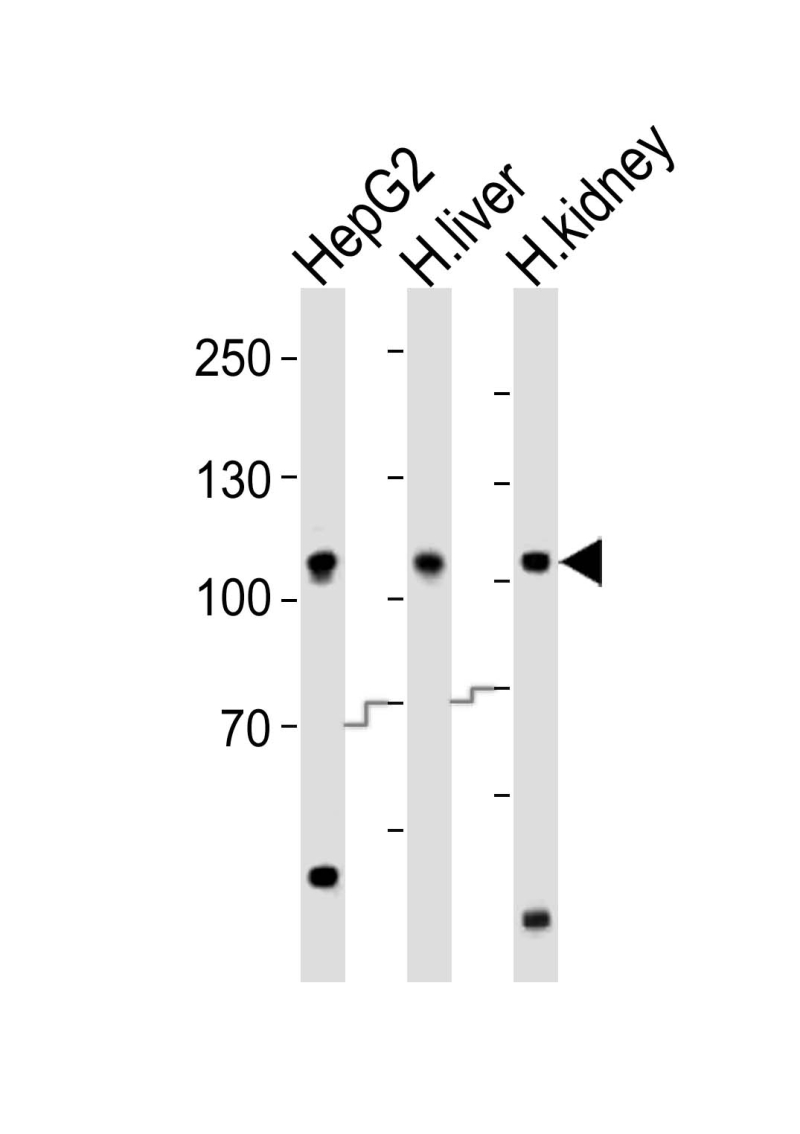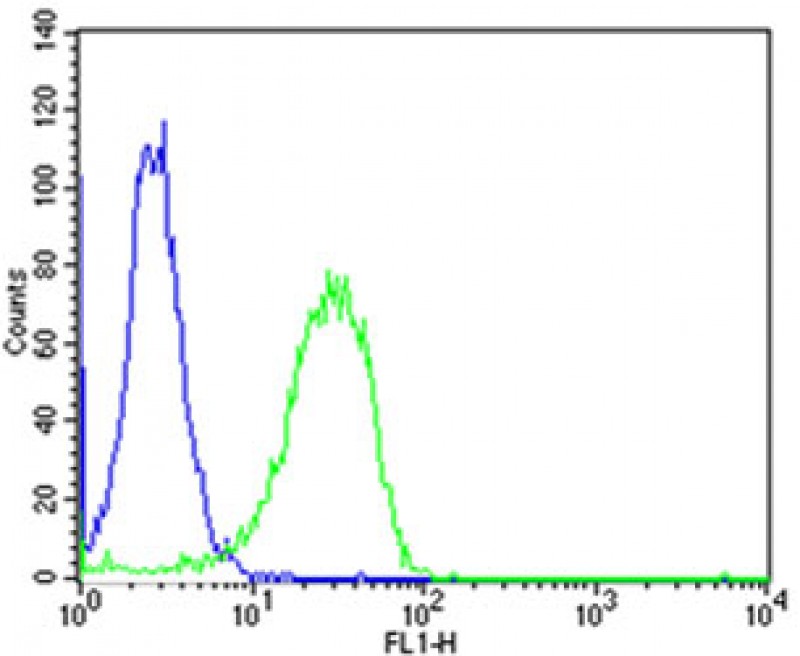

| WB | 1/1000 | Human,Mouse,Rat |
| IF | 咨询技术 | Human,Mouse,Rat |
| IHC | 咨询技术 | Human,Mouse,Rat |
| ICC | 技术咨询 | Human,Mouse,Rat |
| FCM | 1/25 | Human,Mouse,Rat |
| Elisa | 咨询技术 | Human,Mouse,Rat |
| Aliases | Microsomal triglyceride transfer protein large subunit, MTTP, MTP |
| Entrez GeneID | 4547 |
| WB Predicted band size | 99.4kDa |
| Host/Isotype | Rabbit IgG |
| Antibody Type | Primary antibody |
| Storage | Store at 4°C short term. Aliquot and store at -20°C long term. Avoid freeze/thaw cycles. |
| Species Reactivity | Human |
| Immunogen | This MTTP antibody is generated from a rabbit immunized with a KLH conjugated synthetic peptide between 878-911 amino acids from the C-terminal region of human MTTP. |
+ +
以下是关于MTTP抗体的3篇参考文献概览,涵盖其功能、疾病关联及实验应用:
---
1. **文献名称**:**"Role of Microsomal Triglyceride Transfer Protein in Apolipoprotein B-100 Secretion"**
**作者**:Wetterau JR, et al.
**摘要**:研究通过纯化MTTP蛋白并开发特异性抗体,证实MTTP在肝脏和肠道中促进载脂蛋白B-100与脂质结合的关键作用。抗体实验显示MTTP缺失会阻碍极低密度脂蛋白(VLDL)组装,导致脂代谢紊乱。
2. **文献名称**:**"Mutations in the Microsomal Triglyceride Transfer Protein Gene Cause Abetalipoproteinemia"**
**作者**:Berriot-Varoqueaux N, et al.
**摘要**:通过分析无β脂蛋白血症患者,发现MTTP基因突变导致蛋白功能丧失。研究利用MTTP抗体检测患者细胞中蛋白表达缺失,建立了基因突变与脂质吸收障碍的直接关联,为临床诊断提供依据。
3. **文献名称**:**"Microsomal Triglyceride Transfer Protein Inhibition Induces Insulin Resistance in Mice"**
**作者**:Hussain MM, et al.
**摘要**:实验使用MTTP特异性抑制剂和抗体探究MTTP功能抑制的影响。结果显示,肝脏MTTP活性降低导致脂蛋白分泌减少,引发胰岛素抵抗,提示MTTP在代谢综合征中的潜在调控作用。
---
以上研究均通过MTTP抗体揭示其在脂代谢、疾病机制及治疗中的重要性,涵盖基础科学到临床应用。如需具体文献来源,可进一步在PubMed或学术数据库中检索标题或作者。
Microsomal Triglyceride Transfer Protein (MTTP) is a crucial lipid-transfer protein primarily expressed in the endoplasmic reticulum of hepatocytes and enterocytes. It plays a pivotal role in assembling and secreting apolipoprotein B-containing lipoproteins, such as very-low-density lipoprotein (VLDL) in the liver and chylomicrons in the intestine. MTTP facilitates the transfer of triglycerides, cholesterol esters, and phospholipids during lipoprotein particle formation, enabling lipid transport through the bloodstream. Genetic mutations in MTTP are linked to abetalipoproteinemia, a rare autosomal recessive disorder characterized by defective lipid absorption, leading to malnutrition, neuropathy, and retinopathy.
MTTP antibodies are essential tools for studying its expression, localization, and function in lipid metabolism. They are widely used in immunoassays (e.g., Western blot, immunohistochemistry) to investigate MTTP-related mechanisms in metabolic diseases, including atherosclerosis, non-alcoholic fatty liver disease (NAFLD), and obesity. Additionally, these antibodies aid in evaluating therapeutic strategies targeting MTTP, such as inhibitors designed to reduce lipoprotein production in hyperlipidemia. Research also explores MTTP's role beyond lipid transport, including immune regulation and cellular stress responses. By enabling precise detection of MTTP, these antibodies contribute to advancing our understanding of lipid homeostasis and associated pathologies.
×